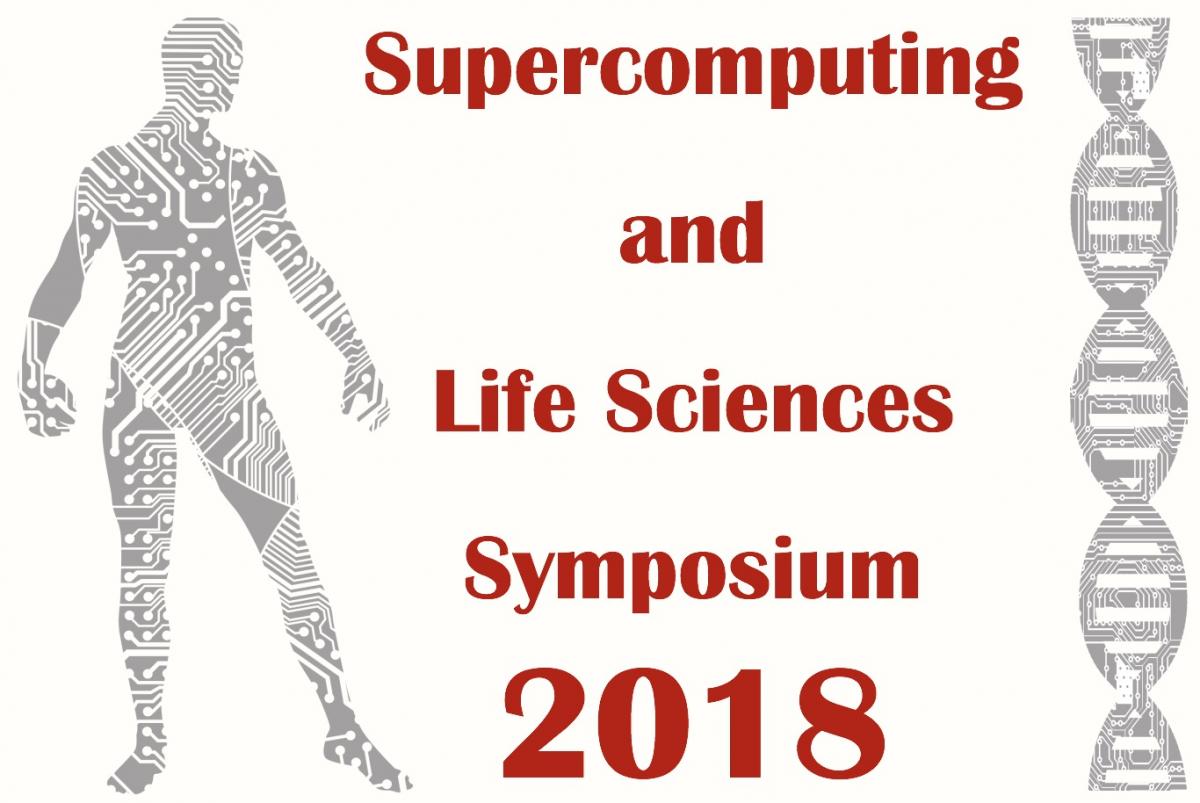
In March researchers from across NU gathered with speakers from CyVerse, Internet2 and the Center for the Advancement of Data and Research in Economics for the Supercomputing Life Sciences Symposium at the WIC Alumni center at the University of Nebraska. The symposium, organized by the university’s Holland Computing Center (HCC) and Quantitative Life Sciences Initiative (QLSI), highlighted topics in computational sciences, high-performance computing and quantitative life sciences research.
Faculty, and graduate/post doctoral student attendees represented a wide range of areas including Agronomy & Horticulture, Animal Science, Biochemistry, Biological Sciences, Biological Systems Engineering, Biomedical Engineering, Center for Biotechnology, Chemical and Biomolecular Engineering, Chemistry, Civil Engineering, College of Business and Information Systems, Complex Biosystems, Computer Science and Engineering, Plant Pathology, Food Science and Technology, Information Technology, Mathematics, Mechanical and Materials Engineering, Nebraska Center for Virology, Physics, Psychology, School of Natural Resources and Statistics.
Featured talks included:
HPC on the Prairie, Doug Jennewein, Director Research Computing, University of South Dakota; Internet2: Powered by Community, Dale Finkelson, Senior Program & Services Manager, Internet2;
The Past, Present, and Future of High Performance Computing in CADRE, BJ Lougee, HPC Engineer, Center for the Advancement of Data and Research in Economics (CADRE), Federal Reserve Bank of Kansas City;
Unleashing your inner data scientist: Ability and Audacity to scale your science, Nirav Merchant, Director, UA Data Science Institute, Co-PI – CyVerse;
Comparative genomics reveals earlier undetected plant growth promoting properties in anaerobic bacteria, Sanjay Antony Babu, Post-Doctoral Researcher, School of Biological Sciences, University of Nebraska-Lincoln;
What do patterns of gene flow among thousands of genomes reveal about bacterial species?, Erik Wright, Assistant Professor, Biomedical Informatics, University of Pittsburgh;
Interaction between dietary peptides and gut microbiota- A road to opportunity, Rohita Sinha, Research Assistant Professor, Food Science and Technology, University of Nebraska-Lincoln and
Big Data for Precision Health: Interdisciplinary Informatics at UNO, Kate Cooper, Assistant Professor, School of Interdisciplinary Informatics, University of Nebraska Omaha. Directors, David Swanson and Jennifer Clarke, gave overviews on the state of the Holland Computing Center and the Quantitative Life Sciences Initiative.
Over two dozen posters covering research relevant to the QLSI mission to develop research and educational resources, expertise, and opportunities in data sciences for the life sciences and/or benefiting from advance computing use of HCC, the Open Science Grid or XSEDE resources competed for prizes. 1st Place … Analyzing Dynamic Real World Graph using High Performance Computing - Sriram Srinivasan … 2nd Place … Using Computational Methods to Study Fracture in Heterogeneous Material - Javad Mehrmashhadi … 3rd Place … Dynamic response of posterior eyeball subjected to blast loadings - Junfei Tong
To see the complete list of posters and abstracts visit https://hcc.unl.edu/SLS-Symposium-2018#poster